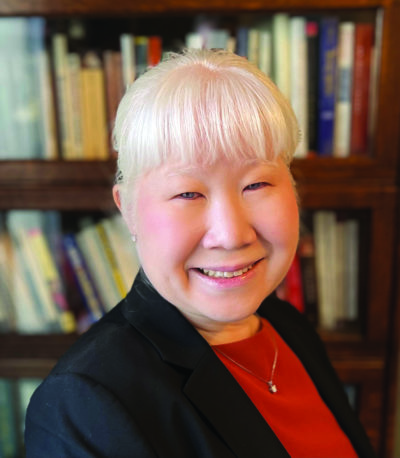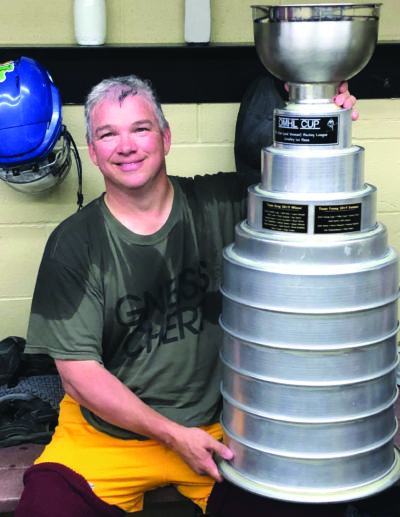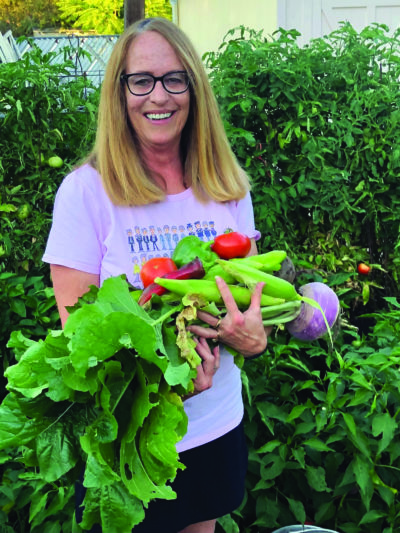
Seven Questions with Sueanna Johnson, Robert James, and Margaret Vellar
November 2022
Download This Article (.pdf)
I first attended the Colorado state judicial conference in the fall of 2006. I was a brand-new district court judge, very much in the “drinking out of the firehose” stage of my career. That first conference was a wonderful, somewhat intimidating, and energizing experience. I learned a lot.
Designed to provide judicial officers with focused, intensive judicial education over the course of two days of classes, conference brings us together in ways that transcend that important purpose: it gives us a way to come together in one place and connect. As I write this, 16 years later, having just come back from conference, I’m grateful for the opportunity to attend such high-quality continuing judicial education, to hear insightful and inspiring speakers, and—after two years of being apart—to connect in person with our community of judicial officers from across the state.
I was delighted to catch up with old friends and colleagues and to see—some in person for the first time ever—the judges I’ve interviewed for this series over the past year. It was also a real pleasure to get to meet so many of our new judges. Their energy, enthusiasm, and commitment to this important and difficult work was palpable. I look forward to having the opportunity to introduce you to some of them over the coming months, including the three judges featured this month, Judge Sueanna Johnson, Judge Robert James, and Judge Margaret Vellar.
Sueanna Johnson
 Judge Sueanna Johnson was appointed to the Colorado Court of Appeals in December 2019. Before her appointment, she was employed with the Colorado Attorney General’s Office, first as an assistant attorney general and then as a senior assistant attorney general. She is active within the Colorado Asian Pacific American Bar Association and is a member of the Thompson G. Marsh Inn of Court. As a person with albinism and a visual impairment, she is a member of the National Organization of Albinism and Hypopigmentation. For that organization, she speaks to parents who have children with albinism and was a featured adult in the book Raising a Child with Albinism: A Guide to the School Years.
Judge Sueanna Johnson was appointed to the Colorado Court of Appeals in December 2019. Before her appointment, she was employed with the Colorado Attorney General’s Office, first as an assistant attorney general and then as a senior assistant attorney general. She is active within the Colorado Asian Pacific American Bar Association and is a member of the Thompson G. Marsh Inn of Court. As a person with albinism and a visual impairment, she is a member of the National Organization of Albinism and Hypopigmentation. For that organization, she speaks to parents who have children with albinism and was a featured adult in the book Raising a Child with Albinism: A Guide to the School Years.
Judge Johnson was born in Seoul, South Korea, and was adopted when she was 3 years old. She is a graduate of Colorado College and the University of Colorado Law School, where she received her JD in 2003. She is married with two school-aged children.
Best thing about the job:
Working with extremely bright, intellectually curious, and amazingly hardworking people.
Most challenging thing about the job:
The workload—it’s intense. No matter how much work people warned me there would be, there’s more.
Advice to a lawyer who wants to become a judge:
It’s important not only to talk to other judges to see what the job is really like, but also to find out about their path to the judgeship. People will be surprised to learn that many judges didn’t follow the traditional “law review in law school, clerking for a district court or appellate judge, and practicing corporate law in a firm” route.
If you had a walk-up song, what would it be?
“Dancing Queen” by ABBA.
Favorite author:
Milan Kundera, but a close second is Phillip Roth.
Travel destinations on your bucket list:
Before the pandemic, I was able to visit Chatsworth, the manor house that was supposedly Jane Austen’s inspiration for Fitzwilliam Darcy’s estate in Pride and Prejudice.
People would be surprised if they knew this about you:
I like bad action-adventure movies, especially James Bond or anything with the CIA or foreign spies.
Robert James
 Judge Robert James was appointed to the District Court for the Thirteenth Judicial District effective October 1, 2021. Before his appointment, he served as a deputy district attorney in the Thirteenth Judicial District and in the Nineteenth Judicial District. He also worked in private practice and served as a municipal court judge in Log Lane Village and in Stratton, Colorado.
Judge Robert James was appointed to the District Court for the Thirteenth Judicial District effective October 1, 2021. Before his appointment, he served as a deputy district attorney in the Thirteenth Judicial District and in the Nineteenth Judicial District. He also worked in private practice and served as a municipal court judge in Log Lane Village and in Stratton, Colorado.
Best thing about the job:
The variety of people and challenges that I encounter every day. No two days are the same.
Most challenging thing about the job:
Balancing life and work. Doing this job is like drinking from a fire hose while walking backward on a treadmill that randomly changes speeds but never stops. There is no end to what needs to be done, and it would be very easy to take work with me wherever I go. I have gradually become okay with knowing that I won’t finish everything today and that my inbox likely will never be empty. That has allowed me to actually relax at home, recharge for the next week at work, and enjoy my family, animals, and hobbies.
Walk-up Song:
“Unforgettable” by Godsmack.
Book that changed my life:
Fate is the Hunter by Ernest K. Gann. My dad gave me his copy of this book shortly before he died. The message in the book, and the intent of the gift, was to emphasize that you never know when it will be your time. My father always lived that way and, thanks to him, I try to live that way as well. Fate is the Hunter has many examples of how lives are lived and lost based on almost trivial decisions. Turning this direction instead of that one. Turning down a trip on a plane at the last minute. You just never know when a decision like that will be the last one you get to make. I am fortunate that my dad and I left nothing unsaid. We had no loose ends when he passed away, and the biggest reason for that was the realization that fate can intervene at any time, which meant we didn’t leave things until later if we could do them now.
What do you do for health/wellness?
I play ice hockey in an over-35 league, ski with my daughter Jessica, and relax by listening to music, reading books, and writing haikus for my wife.
The most beautiful place I’ve ever been:
I grew up in the most beautiful place I’ve ever been—Estes Park. I lived there for 25 years with my parents and six siblings, with Rocky Mountain National Park as my backyard, Longs Peak towering out my front window, and daily views of deer and elk everywhere I went.
What helps you destress/maintain perspective/stay sane:
These are all related. My wife Apryl keeps me grounded. My daughters Jessica and Sage give me perspective—what’s important in life is so apparent when I talk with them. My granddaughter Lilly helps me stay young. And my home in the country, with our dogs, cats, ducks, goats, chickens, and cows, keeps me sane. There’s no better way to realize what is and isn’t important than getting up in the middle of winter and making sure these animals have enough food and open water and shelter to survive another sub-zero night.
Margaret Vellar
 Judge Margaret Vellar was appointed to the Pueblo County Court bench in May 2021. Before becoming a judge, she was a prosecutor for the Tenth Judicial District Attorney’s Office in Pueblo and a prosecutor at the Fourth Judicial District Attorney’s Office. While a prosecutor, she earned the Sean May Sustained Excellence Award.
Judge Margaret Vellar was appointed to the Pueblo County Court bench in May 2021. Before becoming a judge, she was a prosecutor for the Tenth Judicial District Attorney’s Office in Pueblo and a prosecutor at the Fourth Judicial District Attorney’s Office. While a prosecutor, she earned the Sean May Sustained Excellence Award.
Judge Vellar grew up (mainly) in Arizona and the Denver metro area and is from a family of four children. She is a graduate of the University of Colorado Law School, where she received her JD in 1989. She lives in Pueblo with her husband and four very cute but disobedient dogs.
Thing or things you’d like to see attorneys do more often:
Be prepared and on time and pick their battles instead of picking every battle no matter how inconsequential the outcome will be. Also, when I say “prepared,” that means they know how to proceed in the hearing, whether that’s properly introducing a piece of evidence, spotting and arguing the correct issues, or having all applicable paperwork completed.
Advice to young lawyers you wish someone had told you:
Listening is your greatest skill as a lawyer. Do it at all times.
What values do you strive to embody as a judge?
Empathy, equity, and patience.
If you could play a professional sport, what would it be and why?
Hockey, because it takes skill, patience, grit, and strength.
Favorite TV show as a child:
The Partridge Family. I loved David Cassidy.
Greatest inspiration or influence and why:
My dad. He grew up on a farm in Montana and was a first-generation US citizen. He was the first person in his family to go to college and receive a degree. He always taught us, by words and example, that hard work pays off, that you don’t complain, that you do what is asked of you, and that you do it to the best of your ability. He had many health problems in his life that he fought through, including a stroke in his 50s that required him to relearn to walk, write, and speak. Toward the end of his life, he was in an assisted living facility and confined to a wheelchair. He never lost his sense of humor and still did what he had to do without complaint even though it was very difficult for him. He passed away shortly before I was appointed to the bench, which was something he always wanted to see.
If I wasn’t a judge, I would be . . .
A farmer. Really. I have a ginormous garden in my backyard that I start from seed every year. It produces an incredible number of vegetables. Not only do I get fresh produce in the summer, but I can and freeze the vegetables and products made from the vegetables, so I get home-grown food all year long. 


